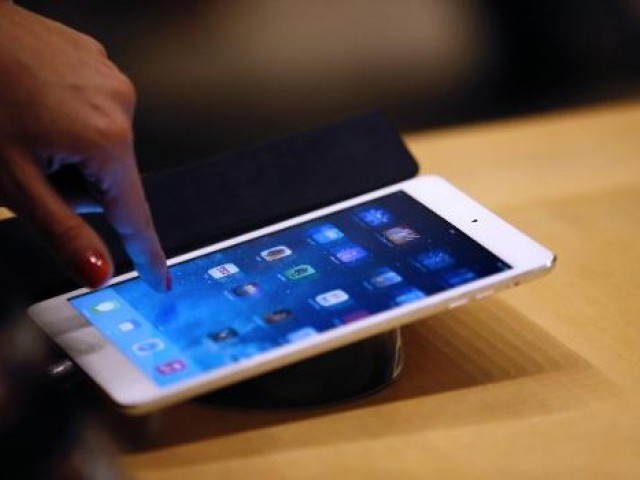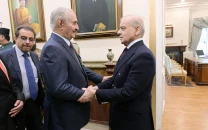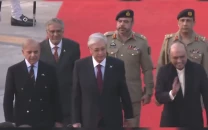Infant feeding practices: Mobile app to help LHWs expand outreach
PIMS Children Hospital carrying out feasibility study in rural areas of Islamabad

PIMS Children Hospital carrying out feasibility study in rural areas of Islamabad. PHOTO: AFP
The six-month pilot project, being carried out by Maternal, Neonatal and Child Health Research Network (MNCHRN), will determine feasibility of expanding the reach of lady health workers (LHWs) in rural areas of the city.
In the first phase, the project will collect data on IYCF practices among expecting women and mothers and determine the type of intervention required. In the next phase of the project, LHWs will be trained in reaching out to women through a specially-designed mobile phone application.
MNCHRN Principal Investigator Dr Tabish Hazir said counselling of expecting mothers is carried out all over the world but unfortunately this has taken a back seat in Pakistan. “This project is aimed at encouraging and reinforcing breast feeding practices by counselling mothers through a mobile phone application,” he said.
Hazir said 70 per cent of babies in Pakistan are delivered at home which means that a significant number of expecting and new mothers remain in limited contact with healthcare providers. “Their only contact remains an LHW’s visit once a month. This leads to misconceptions and wrong child feeding practices” he said.
He added that one of the aims of the project is to provide timely counselling to pregnant and lactating mothers on when, how and what should be fed to newborns.
He said that LHWs already have too much on their plate, therefore the project also aims to facilitate them in a way that they can simply do their job by sending need-based messages on time. “Usually, mothers start feeding their newborns with solids when they are three to four months old, which is wrong”, he said.
“LHWs will send customised messages according to the need of a particular woman. For example, an expecting mother in her trimester is sent information pertaining to issues and guidance required specifically for that stage of pregnancy,” he added.
Hazir said these counselling messages are compatible with the simplest of mobile phones, adding similar pilot projects in India, Bangladesh, and Sindh have been a success.
If the pilot project is successful, federal and provincial healthcare authorities would be suggested to incorporate the practice in their policies, he explained.
MNCHRN Project Director Dr Hana Masood said LHWs have been very receptive of the idea and found the application user-friendly. “Technology needs to be incorporated in the health sector. Considering the widespread use of mobile phones even in the rural areas, we should look for ways to use this technology to reach the unreachable,” she said.
Published in The Express Tribune, August 30th, 2015.



















COMMENTS
Comments are moderated and generally will be posted if they are on-topic and not abusive.
For more information, please see our Comments FAQ